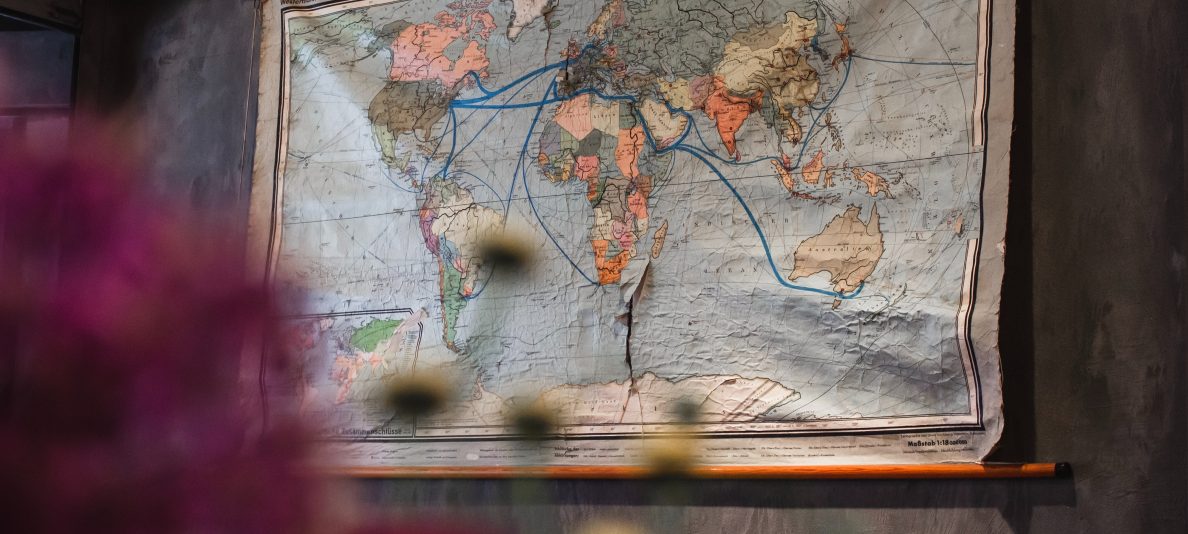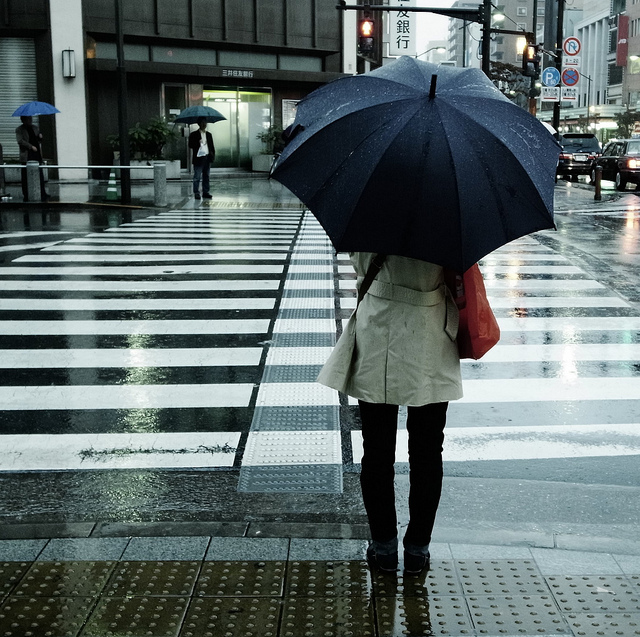Is rain a good or bad thing? It depends, you’d probably say, on what you’re doing at the time.
But when we hear “The rain falls on the just and the unjust,” we usually interpret it as “Bad things happen to good and bad people.”
I don’t think that’s what Jesus meant when he said, in the Sermon on the Mount,
You have heard that it was said, “Love your neighbor and hate your enemy.” But I tell you, love your enemies and pray for those who persecute you, that you may be children of your Father in heaven. He causes his sun to rise on the evil and the good, and sends rain on the righteous and the unrighteous. (Matthew 5:43-45 NIV)
In context, Jesus is talking about how we should give something good (love) to bad people, in the same way God gives the sunshine and rain to them. There certainly are places in the Bible that talk about bad things happening to good people, but I don’t think this is one of them.
E. Randolph Richards and Brandon J. O’Brien, in Misreading Scripture with Western Eyes, point out that we often miss the meaning of Bible passages when we don’t see from the point of view of the authors and audiences of Bible times. (I’ve written about that here.) This seems to be one of those passages.
In our modern American culture, we often pray for nice, sunny days. We want good weather for an outdoor wedding, for a trip to the lake, or for a long drive. And by good weather, we usually mean the absence of rain—and warm, but not too warm, temperatures are great, too.
If all of our prayers were answered, we’d probably have the longest drought in history. Of course, then our attitude would change and we’d think of rain as a blessing. That’s the way farmers most often see it. Of course, an ill-timed rain can keep them out of the fields, and over saturation and flooding can ruin a harvest. But it’s the lack of rain that causes the most problems.
Last year, the UN reported that the majority of the world’s population, 54%, now live in urban areas. According to the World Health Organization, 55 years ago, the urban population accounted for just 34% of the total. Two thousand years ago, that percentage was much less.
In Jesus’ day, the people had a direct tie to the land and the goods that it produced. Think of all the agricultural metaphors Jesus used to get his message across. But today, living and working in air-conditioned buildings with drinkable water only a faucet handle away, much of my thinking about rain centers around my walk to and from the car.
I try to pray less about the weather than I used to. Rather, I want to pray that I will be able to make the best of my day regardless of whether it rains or not. I realize that God is not going to tailor every weather pattern to my scheduled activities, in part because my wishes for that day may be just the opposite of what others want or need. As C. S. Lewis puts it, my downhill could be someone else’s uphill:
Yet again, if the fixed nature of matter prevents it from being always, and in all it’s dispositions, equally agreeable even to a single soul, much less is it possible for the matter of the universe at any moment to be distributed so that it is equally convenient and pleasurable to each member of a society. If a man travelling in one direction is having a journey down hill, a man going in the opposite direction must be going up hill. If even a pebble lies where I want it to lie, it cannot, except by a coincidence, be where you want it to lie. And this is very far from being an evil: on the contrary, it furnishes occasion for all those acts of courtesy, respect, and unselfishness by which love and good humour and modesty express themselves.
Yes, I pray fervently when tornados touch down or typhoons threaten or droughts bring about famine. But I pray less for weather variations simply to enhance my day. Actually, let me restate that first part: I pray fervently when severe weather threatens me, but my sporadic prayers are less than fervent when it comes to famine or flooding half a world away.
We all need to pray less for our corners of the world and more for the huge swaths of people who face disastrous weather each day. We need to pray that those of us with much will help those with little who are at the mercy of the elements. We need to pray that our down-hill walk does not cause someone else a more difficult journey. We need to pray less for our will and more for God’s will to be done, “on earth as it is in heaven.”
(“World’s Population Increasingly Urban with More than Half Living in Urban Areas,” United Nations, July 10, 2014; “Global Health Observatory (GHO) Data: Urban Population Growth,” World Health Organization; C. S. Lewis, The Problem of Pain, Centenary Press, 1940)
[photo: “Face à Face,” by D. Julien, used under a Creative Commons license]

